'How I overcame poverty and became economically empowered'
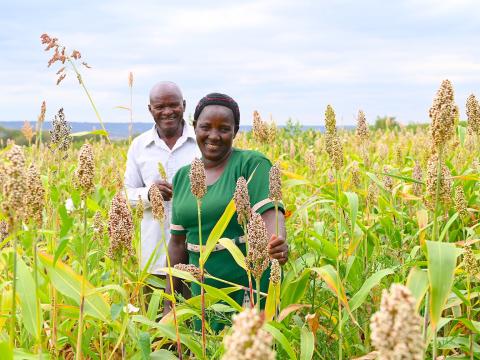
By Sarah Ooko, World Vision Senior Communications & Media Officer, Kenya
More than a decade ago, Felista and her family were wallowing in abject poverty.
No matter how hard she and her husband tried, they could not get sufficient income from the manual labour jobs that they engaged in - such as sand excavation or land tillage.
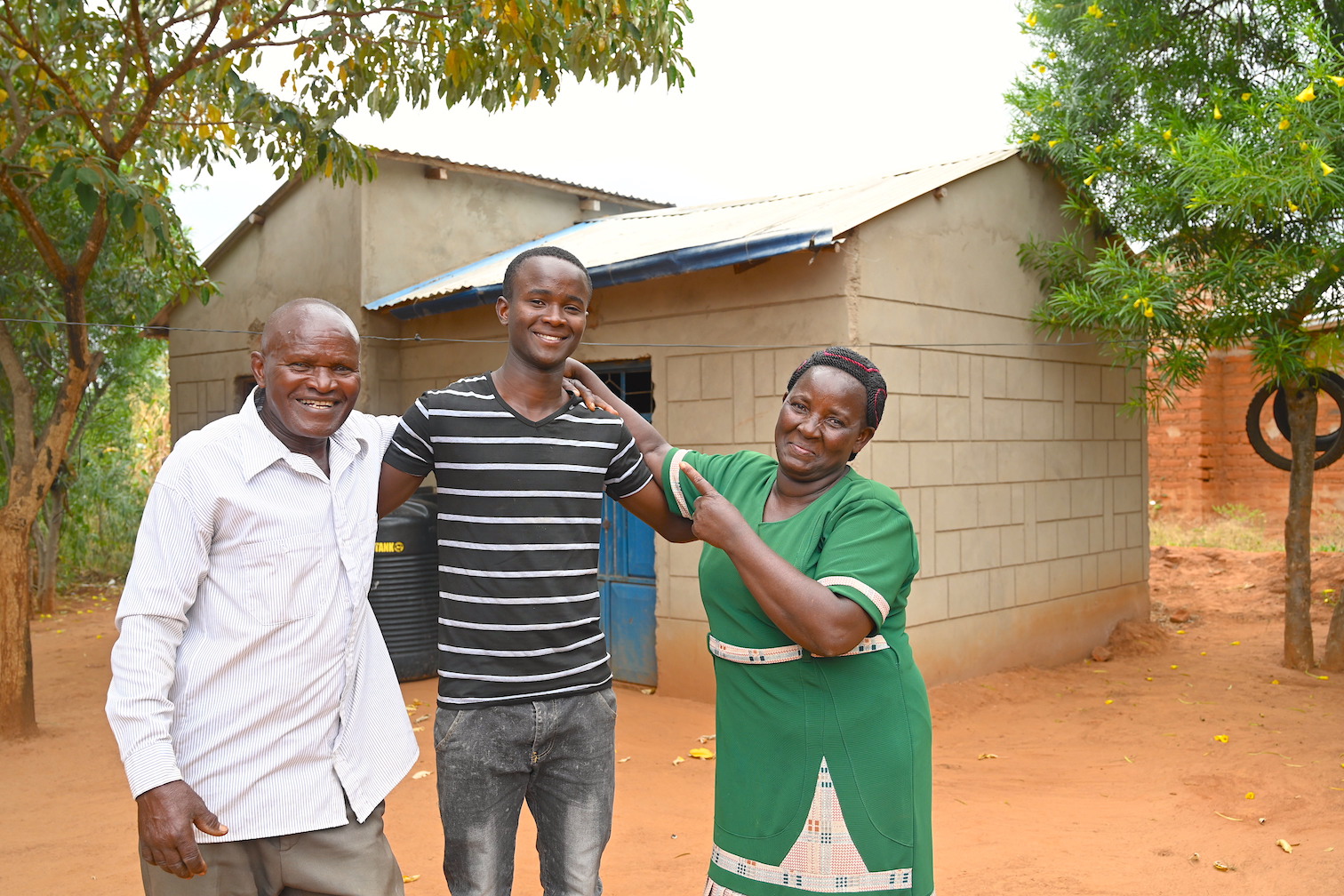
"We used to rely on a single meal most days and could not even afford to buy clothes for my children. I would buy a baggy dress then cut pieces of fabric from it, to make clothes for my children," says Felista.
Her family's life eventually changed for good, after World Vision supported Felista to undertake training in climate-smart agricultural training and to access farm inputs that have enabled her to thrive in crop farming as well as livestock keeping.
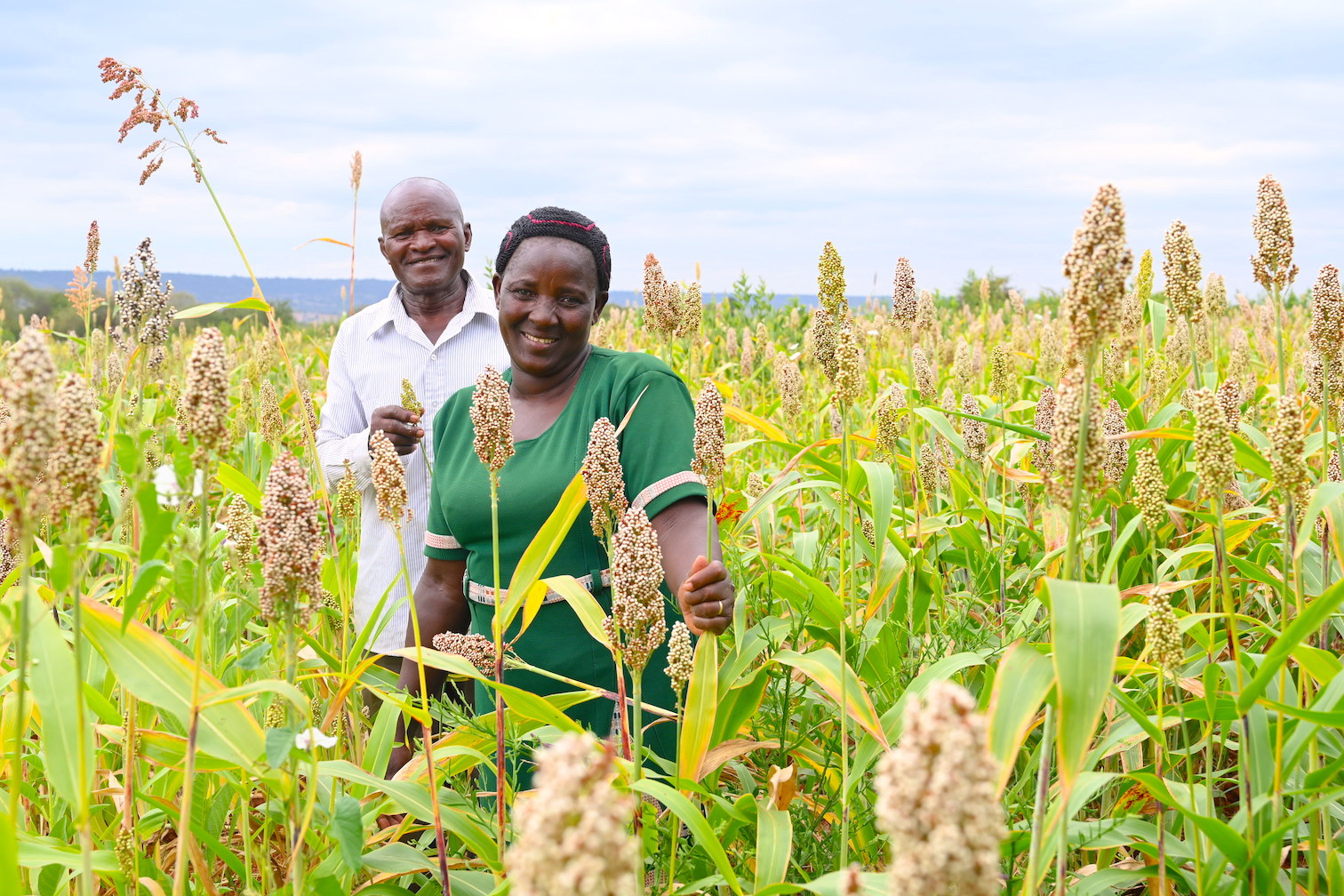
Climate-smart agricultural approaches include techniques that can enable communities to excel in farming irrespective of their environmental conditions.
They include conservation agriculture, agroforestry, integrated pest management, use of drought resistant crop varieties, drip irrigation, water harvesting, mixed farming, as well as promoting sustainable livestock practices like rotational grazing.
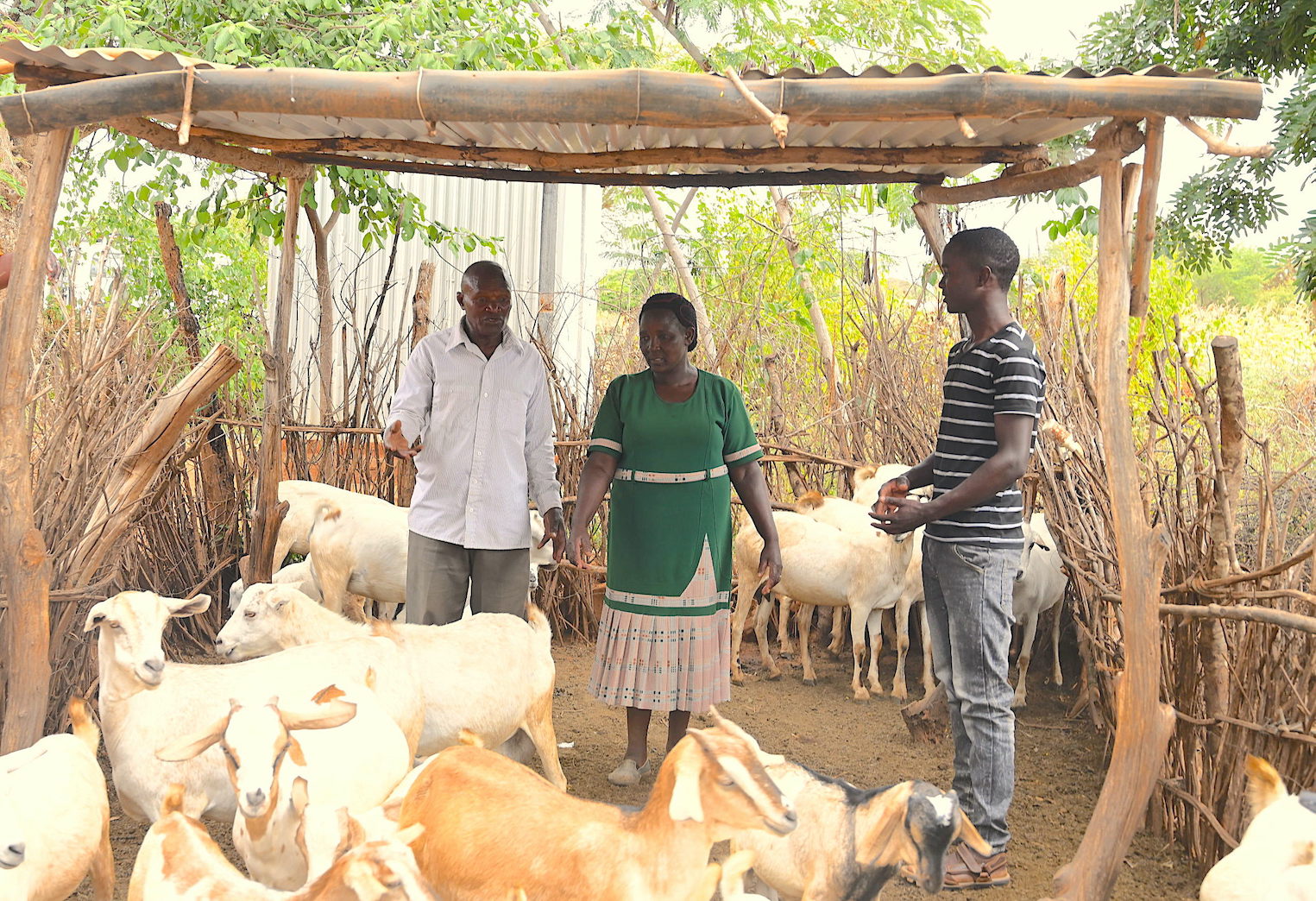
Through World Vision's Empowered World View training, Felista notes that her self-confidence and hope grew. She was inspired to learn that human-beings have the ability to prosper and lead happy lives irrespective of their social or economic status in the society.
"I was so poor but I knew that the knowledge I had gained, as well as hard work and determination would help me to change my life and provide for my family. I received a lot of support from my husband, and together, we were able to succeed," says Felista.
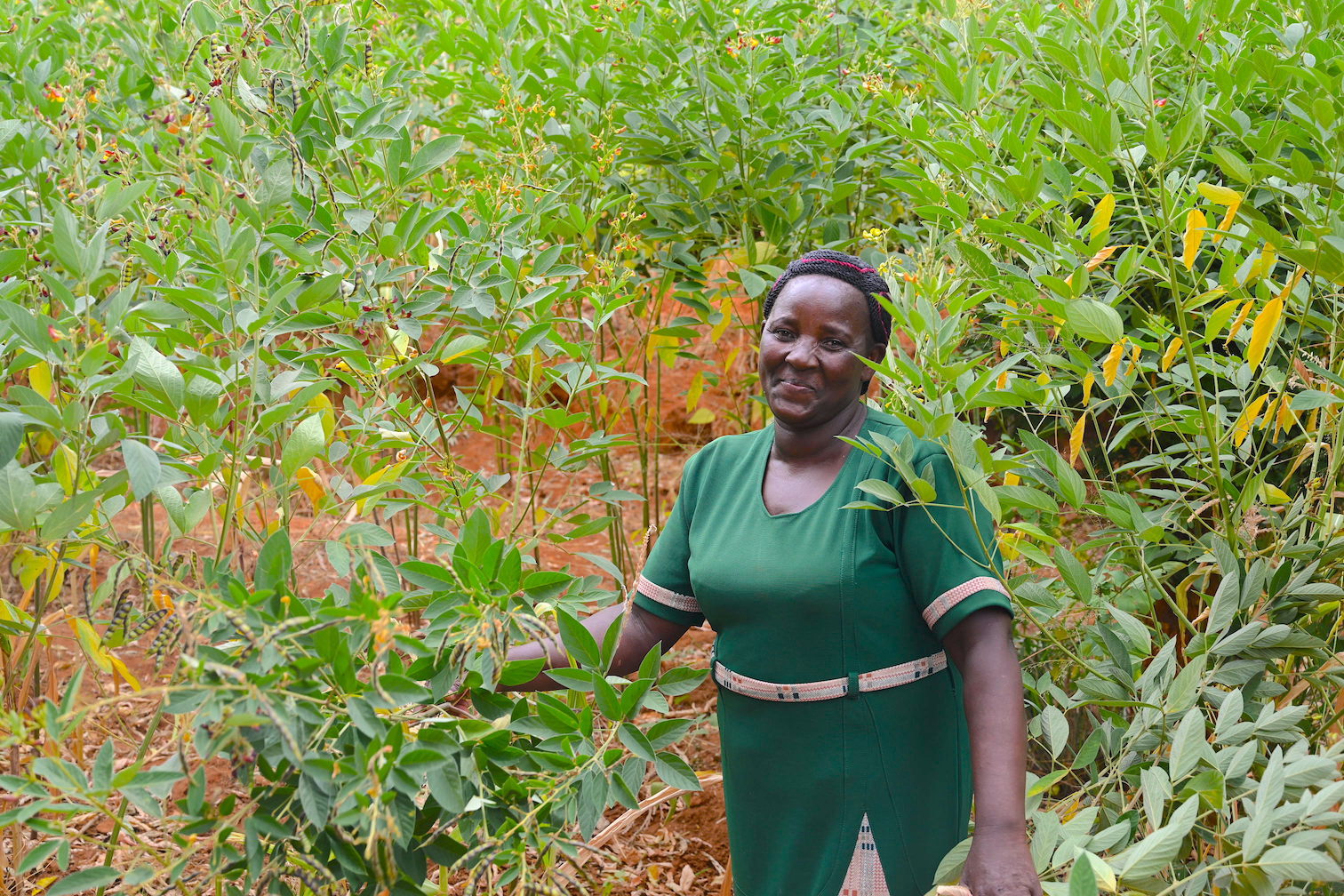
"Now I am happy because my family has enough to eat. We have enough food that can sustain us even during drought periods. And we are healthy because we have different food varieties that ensure we get all the nutrients required," says Felista.
Charles, their fifteen-year-old son who is sponsored by World Vision notes that he is now able to go to school, enjoy all meals and dress well as a result of his family's improved household income and well-being.
"God has really changed our lives through World Vision and I am really grateful as the organisation has supported me and my siblings in very many ways," he says.
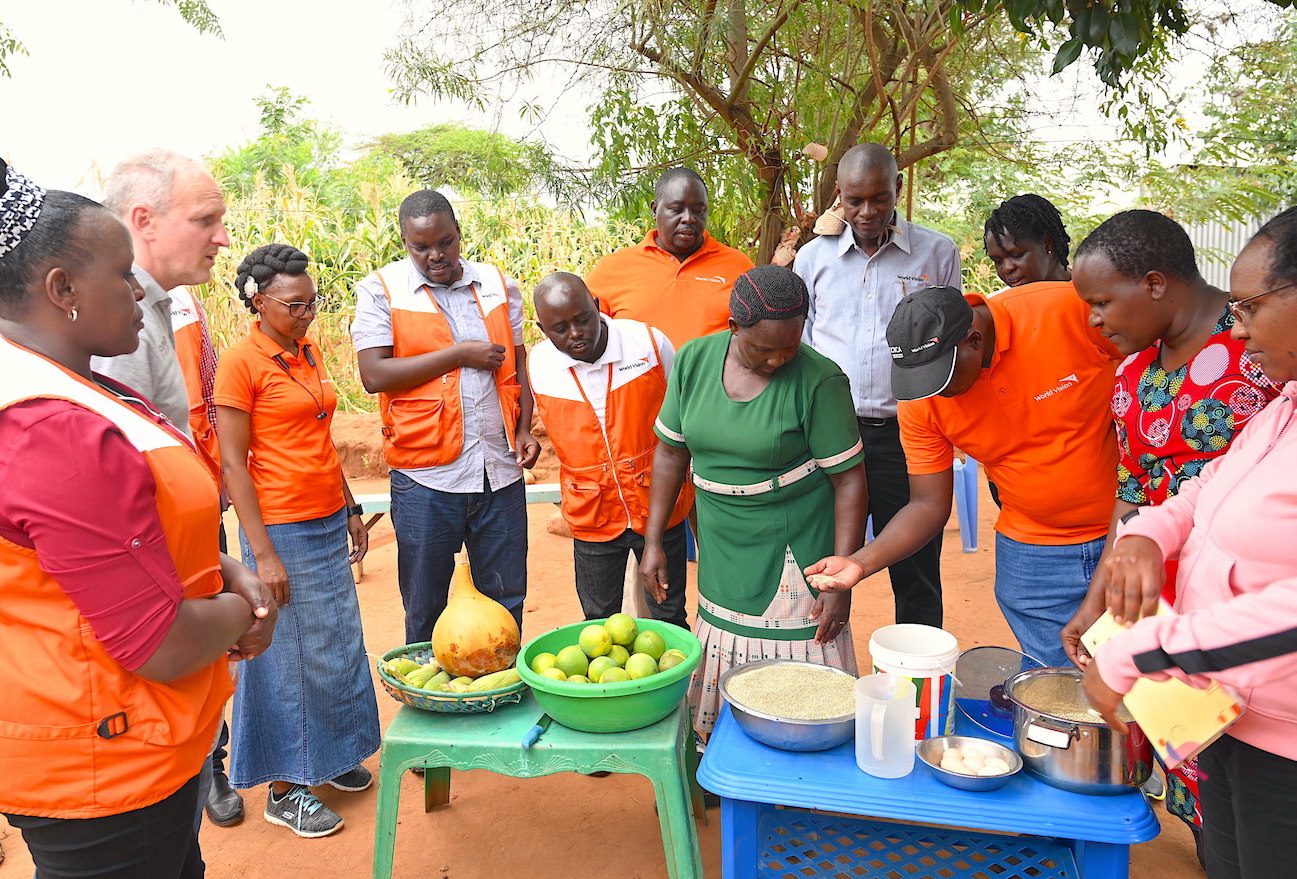
As Felista's income began increasing, she was encouraged to join a financial savings group formed under World Vision's Savings for Transformation (S4T) model.
Through the group, she is able to get loans that have enabled her to continue expanding her farming venture.
"Recently, I was able to buy a water tank for rainwater harvesting from a loan I got from my S4T group. It usually helps me during the dry season," she says.
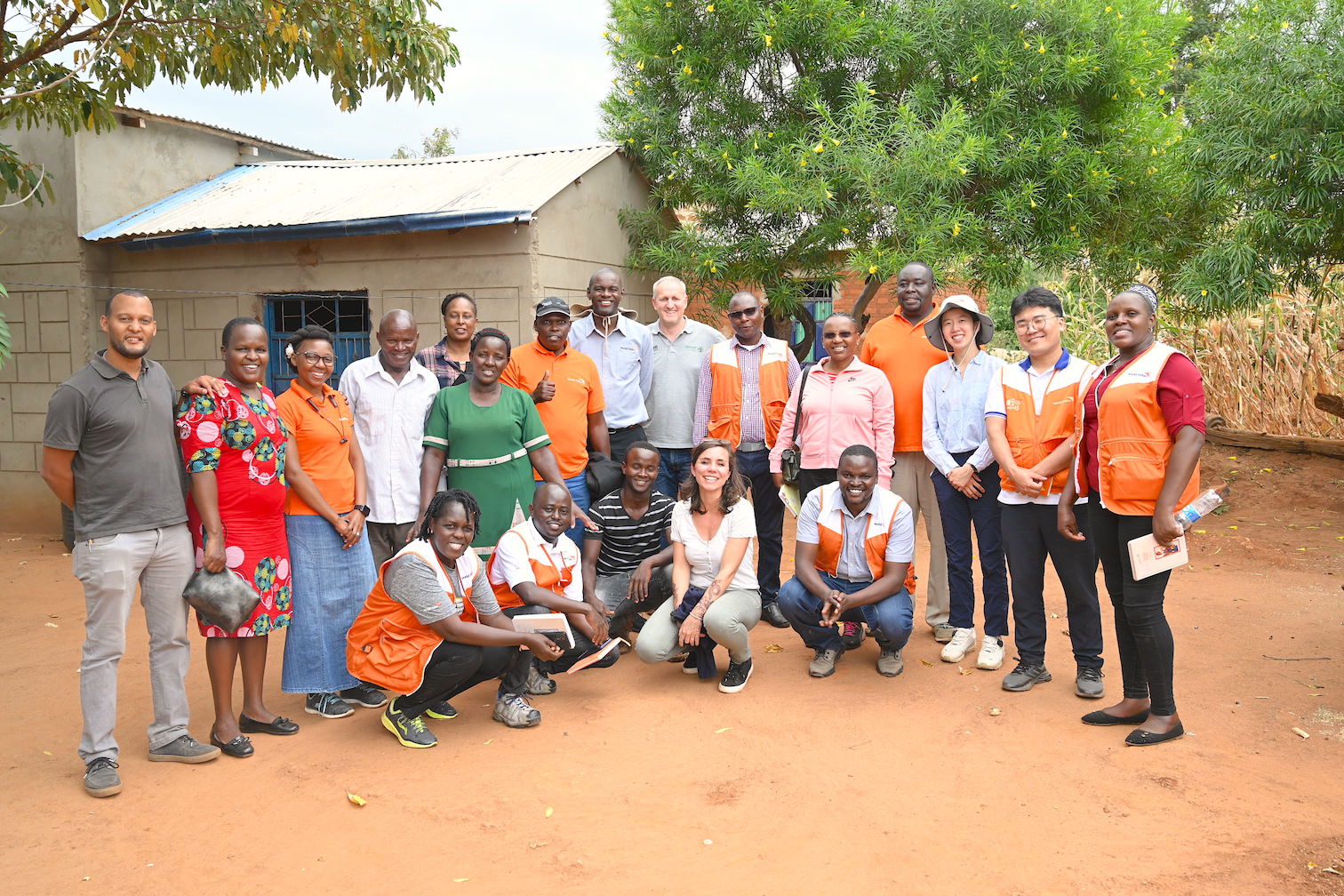
Felista is among the many farmers in Kenya that have benefitted from World Vision's Building Secure Livelihoods (BSL) project model that provides a comprehensive pathway out of poverty for families to improve their livelihoods to levels that are productive and resilient enough, to survive a range of shocks and stresses.
The project model works particularly with rural households described as ‘marginally poor’ who have caring responsibilities for young children. World Vision supports them to improve their agricultural production and make a profitable farming venture to increase family income in a sustainable manner.